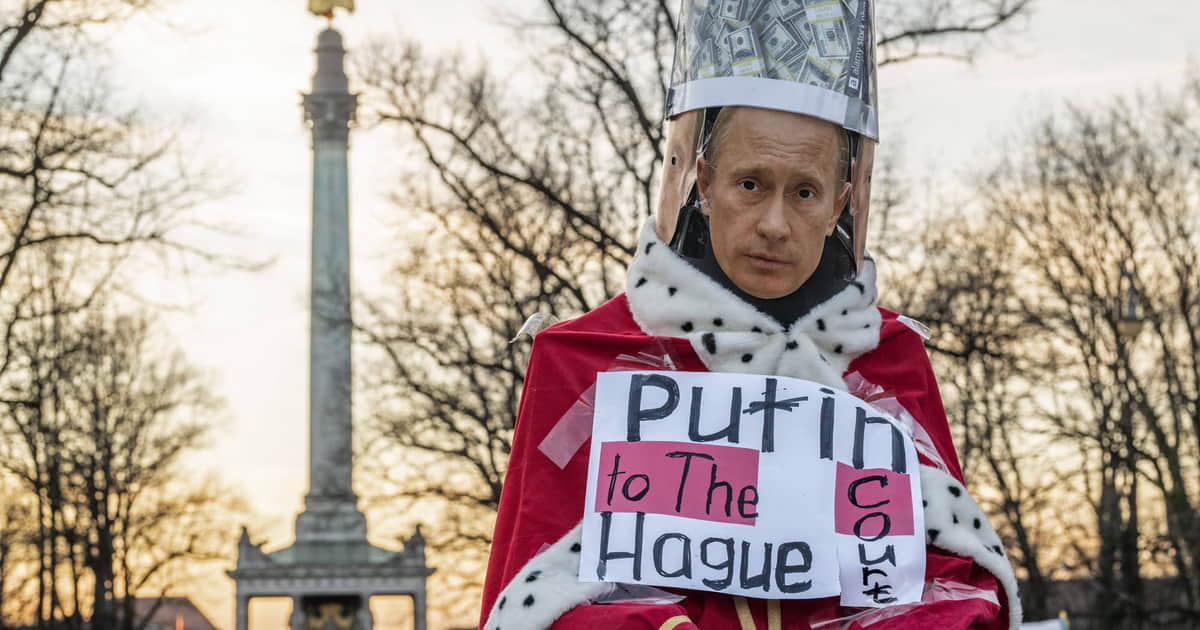Why Ukraine gave up the idea of “hybrid” tribunal for Putin

Last week, the Office of the President of Ukraine posted news about the meeting of the Deputy Head of the Office of the President of Ukraine, Iryna Mudra, with the Ambassador of Japan to Ukraine, which, however, the media left almost unnoticed. However, it looks like this information was aimed not at Japanese or even Ukrainian readers, but at a some European officials and diplomats. European Pravda can assure you that they have received this signal.
Ukraine has outlined conditions under which it will not agree to create a special tribunal regarding the crime of aggression, which the media and politicians' informally call it the "tribunal for Putin." Read more about Ukraine's shift regarding the "tribunal for Putin" and the process of its creation in the article by Sergiy Sydorenko, European Pravda's editor - New rules for Putin tribunal. Why Ukraine's government gives up "hybrid" court.
Advertisement: The tribunal in question is intended to eliminate the gap in international criminal law. According to international norms, aggression is a crime.
This crime is the simplest to prove, but there is no effective punishment for it. To address this problem, Ukraine and partner states have been negotiating the creation of a special tribunal for the crime of aggression since 2022. However, the success of these negotiations is limited, which is why the government has publicly acknowledged the lack of practical progress on the tribunal.
Everyone agrees that a tribunal for Putin is needed, but they cannot agree on how it should look. The reason for the delay is no secret: the issue is that several Western states, Ukraine's key partners (including the USA, the UK, France, etc.), also pursue an aggressive international policy. Of course, there can be no question of equating their actions with Russian ones.
At the same time, these capitals approach the issue very cautiously to ensure that the mechanism found is not potentially applied against them. Ukraine has been insisting from the beginning that the tribunal for Putin must be an international body created by a UN decision bypassing the Security Council. Instead, Western states are promoting a scheme called a hybrid tribunal, or, formally, an internationalised tribunal.
Ukraine has never liked the "hybrid" option, but pressured by the West, Kyiv publicly agreed to it. In August 2023, the then Deputy Head of the Office of the President Andrii Smirnov publicly announced such readiness subject to certain conditions. At the same time, Kyiv informed its partners that it did not see it possible to create it if it cannot overcome the immunities of the "troika" (president, prime minister and foreign minister of the aggressor country).
Currently, Smirnov has been dismissed. The Office of the President assures there that they "never agreed" to consider the hybrid option. And the statement of his successor Iryna Mudra publicly fixes a new position: an internationalised tribunal cannot be the subject of discussion.
In early March, at a meeting of the Core Group in Vienna, representatives of EU institutions put forward another idea for a hybrid tribunal, which does not provide for the accountability of Putin, Lavrov, etc., as long as they hold office. Thus, they proposed a court format that does not meet Ukraine's expectations. Kyiv now insists on an "exclusively international" tribunal, which will be created as a separate international organisation and will not be part of the Ukrainian judicial system.
And now it looks like this time it is about a principled position.
In addition to the body status, Kyiv left the second condition regarding its powers: "there can be no personal immunity for the highest officials of the aggressor state."
If you notice an error, select the required text and press Ctrl + Enter to report it to the editors.